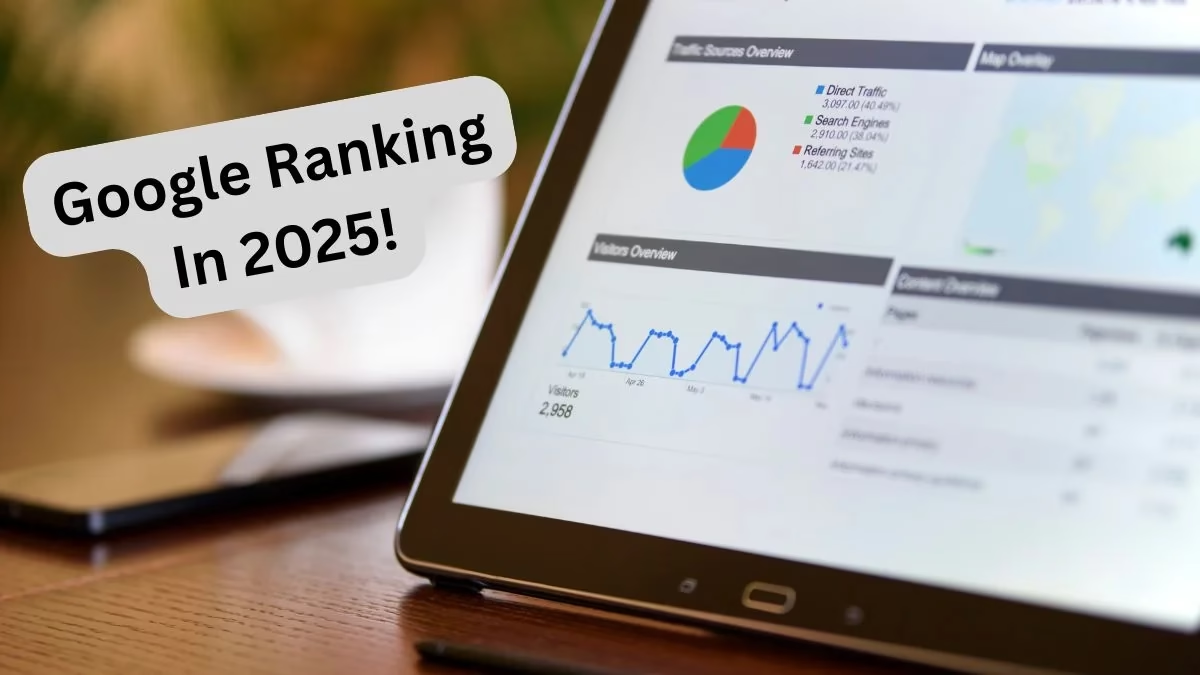
Your page simply refuses to get higher in the Google ranking, despite all the time and effort, you invest in your web page. Sound familiar? You are not the only one. In 2025, Ranking on Google is as competitive as it has never been, and even minor SEO errors can have a significant effect. The positive news? And it is these problems that are, in most cases, fixable – provided you know what to watch out for.
Here are the 8 most common reasons your page isn’t ranking on Google:
1. Lack of High-Quality, Relevant Content
The algorithm used by Google has a single aim, to provide the most useful content to the user. Unless your content is clear and comprehensive in answering the intent of the user, it will not rank.
What to fix:
- Consider producing content that is rich in value by addressing particular issues.
- Write in a natural language, provide the answers to the common questions, add some supporting media such as an image, chart, or video.
- Use old posts and put new information in it to make it more relevant.
2. Weak Keyword Strategy
You can damage your rankings by targeting the incorrect keywords or keyword stuffing. It is possible that you are optimizing keywords that are too difficult or which do not match search intent.
What to fix:
- Find low-competition high-intent keywords with the help of such tools as Google Keyword Planner, Ahrefs, or Ubersuggest.
- Use long-tail keywords and intuitively sprinkle variations within the content.
- Do not neglect optimization of your H1, meta title and URL.
3. Poor On-Page SEO Structure
Keywords are not the only thing in on-page SEO. It is not a good idea to have a messy structure that will require Google to crawl and decipher your content.
What to fix:
- Make sure to use H1-H2-H3 hierarchy.
- Put internal and external links in strategic places.
- Make sure your pictures are alt-text enabled and all pages with correct meta title and description.
4. Slow Website Speed
Core Web Vitals in 2025 are a thing. Having a slow site will get you punished by Google, particularly mobile.
What to fix:
- Test your site speed with such tools as Google Page Speed Insights and GTmetrix.
- Optimize images, browser caching and a faster web host or CDN can be considered.
- Uninstall unwanted plugins and codes.
5. Mobile-Unfriendly Design
Over 60 percent of all searches occur on mobile. A lack of a smartphone-optimized site? And that means you are losing ranking -and traffic.
What to fix:
- Employ a responsive theme.
- Test your mobile status with Google Mobile-Friendly Test.
- Make font sizes readable and buttons tappable on small screens.
6. Missing or Poor-Quality Backlinks
Back links are still a very important ranking factor. Unless other authoritative sites are linking to your material, Google might not consider your page to be so trustworthy or significant.
What to fix:
- Earn backlinks with the help of guest posting, broken link building, or HARO (Help a Reporter Out).
- Quality over quantity — 10 good back links are worth more than 100 low quality links.
- Produce link worthy content such as original research, infographics or free tools.
7. No Indexing or Crawlability Issues
There are cases when your page is not ranking just because Google cannot see it.
What to fix:
- robots.txt and meta tags: verify that you are not blocking pages by accident.
- Be sure to submit your sitemap using Google Search Console to ensure that search engines find and index your pages easily.
- Monitor the Search Console to ensure that your site has no crawl errors or broken links that may impact on its visibility by regularly looking at the Indexing section.
8. Thin or Duplicate Content
Google will not rank pages that do not provide unique value — particularly at those that are similar to many others on the web.
What to concentrate on:
- Do not copy-paste the content used by competitors or manufacturers.
- Include new knowledge, cases, or yourself in your writing.
- It will require the use of such tools as Copyscape or Siteliner to identify duplication.
Tip Improve E-E-A-T
In 2025, E-E-A-T, Experience, Expertise, Authoritativeness, and Trustworthiness, are essential rankings. Google would like to know:
- Author, who wrote it?
- Can they be trusted and are they experienced?
- Is your location safe and clear?
Action steps:
- The credentials of the author and his experience need to be mentioned.
- Establish credibility by making sure your site is HTTPS enabled, and has other required pages, such as a privacy policy and visible contact details.
- Illustrate the practical aspect of it by the examples of the case studies, customer reviews or success stories.
Conclusion:
Just because your page is not Ranking on Google does not mean it is condemned. It says there can be something better – and now you know what to work on. Whether it is a better content and structure, back links and speed of the site, every correction will take you towards page one. The primary factor of ranking success in 2025 will be providing regular quality content accompanied by a brilliant user experience.
Read More:
- 6 SEO Skills You’ll Need by 2026 or Risk Falling Behind
- 7 Effective Ways to Find Trending Keywords for SEO in 2025
- Top 6 SEO Service Trends in 2025 That Will Boost Blogging
- 8 Essential Skills Every Smart SEO Specialist Must Master by 2026
- Local SEO Audit Guide: 8 Steps to Improve Local Rankings


